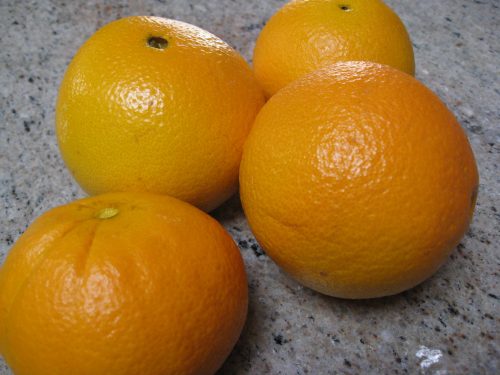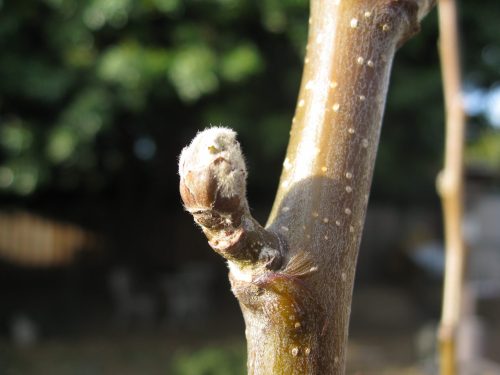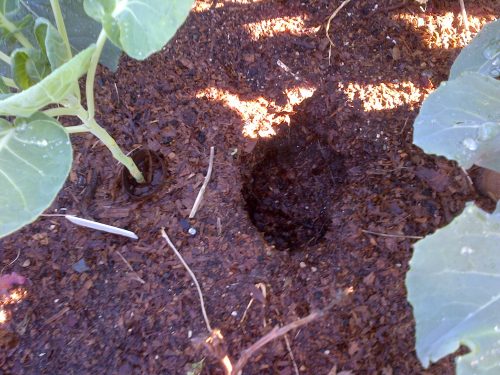We’ve had a flurry of questions over the last couple weeks here at Gardenerd.com. Here’s one that came in with urgency:
“We have had an issue with maggots in my compost tumbler. I am not
using any meats or fats of any kind – only green food wastes. How do
I correct this? Is my compost ruined?”
Not to worry. Those maggots (most likely Black Soldier Fly larvae) are actually helping your compost break down. While it’s true that they bring out the “ick” in most people, maggots, worms, and other garbage consumers are actually powerful creatures when it comes to ridding the world of waste. Here are a couple articles that I found to ease your mind:
Always end with brown – Now, if you still don’t want these critters in your compost bin, one thing you can do to help ward them off and keep them away is to make sure you have a thick enough layer of “browns” – i.e. dried leaves, shredded newspaper, dried grasses, etc., on the top of your pile.
Turn your pile – keeping air flowing through your pile will help in every way. Turn your pile often (letting it get hot in between turnings) and that should help.
Watch the water – compost piles need to be wet, but not too wet. Too much moisture creates an anaerobic environment, which can cause that rotting smell of garbage to permeate your world. The general rule of thumb is to keep your compost pile “moist like a rung out sponge.”
Hope this helps. Keep us posted on the activity in your compost pile.




Pingback: Review: GrubTerra Black Soldier Fly Larvae - Gardenerd
There are loads of maggots in ours. I took a video of the seething mass. I am scared we’ll open the bin in a few days and the nutrients will fly off as a swarm of soldier flies.
They will leave behind nutrients and they consume, so I wouldn’t worry about that Timothy. If you don’t want them in there, feed them to someone’s chickens or ducks. They love them. If you don’t have chickens or ducks in your lives, you can leave them in a bucket out at night and the opossums and raccoons (if you have those) will come feed on them. Crows will too.
I have an upright plastic combose binn that has been in operation for about five yars. Works great, maybe a little slow, so I added red wigglers.
In th meantime, my landlord gave me used of his tumbler compose bin. I thought I would really be cooking with gas now. I set it up threw some on my stationary materials in it and let it go red wigglers and all. The worms went crazy.
Here’s my delimna I think I probably needed to add paper or leaves for aireation during the heat of Arkansas’ summer (ths year temps were relative mild) but one day noticed my worms seemed to be gone and I had what I consider an infestation of maggots. It is my belief that sometime during the summer by worms died and the maggot showed up to feed on their carcasses
I’ve been reading about maggot cmposting. Maybe they aren’t terrible after all.
I have yet to dump that bin. I mean after all who wants maggots in their soil?
I need some insight here. Help! What should I do next? It’s October
Hi Lin,
Hmmm…worms in a compost tumbler. They generally like things cool and dark, so if your compost tumbler is in the sun, they will try to leave or seek shelter. If there is no escape, they will die. Don’t get me wrong, worms in the compost bin are fine if you have enough material in there for them to hide inside to keep cool. Usually compost bins are situated on soil so they can burrow down to the bottom to retreat from the heat, but a tumbler has no “bottom” so to speak, so they have nowhere to go for refuge.
The introduction of maggots is generally not a bad thing (they break down organic matter just like worm and other creatures in soils). LOTS of people write in asking about maggots, or black soldier fly larvae, or some other gross creature that has infiltrated their compost and worm bins. It’s perfectly fine. Once the organic matter is broken down completely they will have nothing left to eat and will leave or die. Some people even breed black soldier fly larvae in their worm bin to feed to their chickens. Great protein for hens!
But I digress. You may want to add more brown material (dried leaves, shredded paper, coir, etc.) to your bin to see if things dry up a little, making the space less hospitable for your maggots. They like things moist. Worms prefer a balance. Not too wet, not too dry. They vacate if it’s too extreme in either direction. So, add more paper, put it in the shade and wait it out to see what happens. Sound good?
Wow i just saw my compost bin loaded with maggots. I hate maggots!! I freaked out and got on line. Geuss they are good for the bin i will leave them alone and let them do their thing.
Yea, don’t worry about it, Lisa. By the time your compost is broken down they’ll be gone and they’re helping it all happen faster anyway. Good luck with your compost!
Wow, when i saw maggots in my compost i was FREAKED!! but now i feel much better reading this and all the other info online. Phew! i guess i will just leave them and hope that when they get added to my garden all will be well.
You can send pictures to askgardenerd@gardenerd.com. They will most likely leave if they run out of food. It won’t affect your soil (decomposition makes compost, compost is good). Just make sure they aren’t June beetle grubs:
https://www.google.com/search?q=june+beetle+grubs&hl=en&client=firefox-a&hs=3cU&rls=org.mozilla:en-US:official&prmd=imvns&tbm=isch&tbo=u&source=univ&sa=X&ei=_m3GT9zdJqOq2gWmuoztAQ&ved=0CFoQsAQ&biw=1467&bih=982
They eat plant roots.
The larvae are brown with stripes. No place to send a picture here!! If they run out of food, will they just die in my bin? Will that affect the quality of the dirt when I use it for gardening?
Without a description of the larvae, I’m going to take a guess and say that it’s probably black soldier fly larvae. They start out white, then turn black as they pupate. They’re actually not bad for the compost bin, but they do consume a lot of food. If you leave it out for the birds, they will definitely take advantage. In 100 degree heat, it won’t take long for the grubs to fry if you do leave them out in the sun. You can also go to your local farmers’ market and ask the vendors for the discarded carrot tops and other “unsightly produce” that gets tossed. They’ll probably be willing to give it to you.
My compost (in a plastic garbage pail with holes drilled in sides and top) is now teaming with these larvae. I am only one person so don’t know if I will have enough food for them, it’s loaded now. What will happen to them if I don’t have enough waste to add? Can I lay the dirt out and let the birds eat them? Will they? (I’m in PHoenix and it’s now 100 most days)
Hi Em,
Sounds like you have black soldier fly larvae in there. ‘Tis the
season. They are fine to be in your bin, as they consume a tremendous
amount of food waste. While it’s true they are gross, as the blog mentions, they help your
compost along. If you really don’t like them, you can scoop out the
larvae, but it’s pretty tough to get rid of them entirely.
Hello –
I put a cantaloupe rind in my compost bin last night and this afternoon it is teaming with giant caterpillar size maggots – all attacking the rind with gusto. Is this ok? Every so often we leave the bin lid up to air it out as we don’t have quite as many leaves/brown material as necessary. So I imagine the flies got in there and laid. But it’s so gross to see them over night! Is something wrong? Should I be concerned?
HI Kiki,
The Black Fly larvae are in my worm bin as well. They will hatch into flies and leave eventually. It’s the time of year for them I guess. Gross, yes, but they do help break down the waste material. If you wanted to scoop them out, you could, but I’d just leave it and let nature take it’s course.
hi Christy, i’m a neighbor in Mar Vista and have LOTS of BSF larvae in my compost tumbler, and they’ve made my compost wet. and icky. really icky. it moves. i’d say there are hundreds of these worms. i’ve seen a few of the flys. my understanding is that these worms are all going to hatch at some point? yikes.
what to do??
FWIW, i just googled my problem and come up with a great thread from you, our neighbor, on gardenerd. how neat! thank you in advance for any help or suggestions.
kiki
That’s a really good question. The only thing I’ve seen written about them is their voracious appetite that helps devour food scraps more quickly in the compost bin – things like cheese and stuff that you’re not really supposed to put in there. In the end, it all gets mixed together as organic matter, so I’m sure it can’t be all that bad.
I do wonder about the liquid the BSFs secrete. Would this be good for watering plants as well? Are there any nutrients in those (like compost tea)?
Not to worry. As far as I know, maggots are not going to harbor any diseases in your compost bin or finished compost.